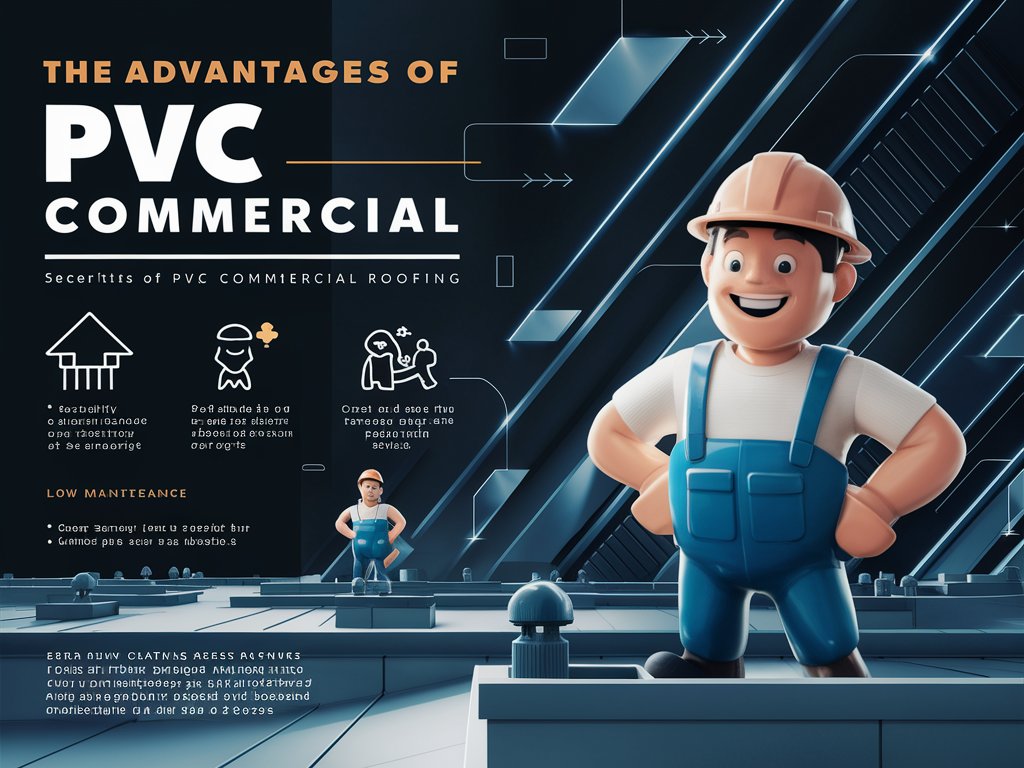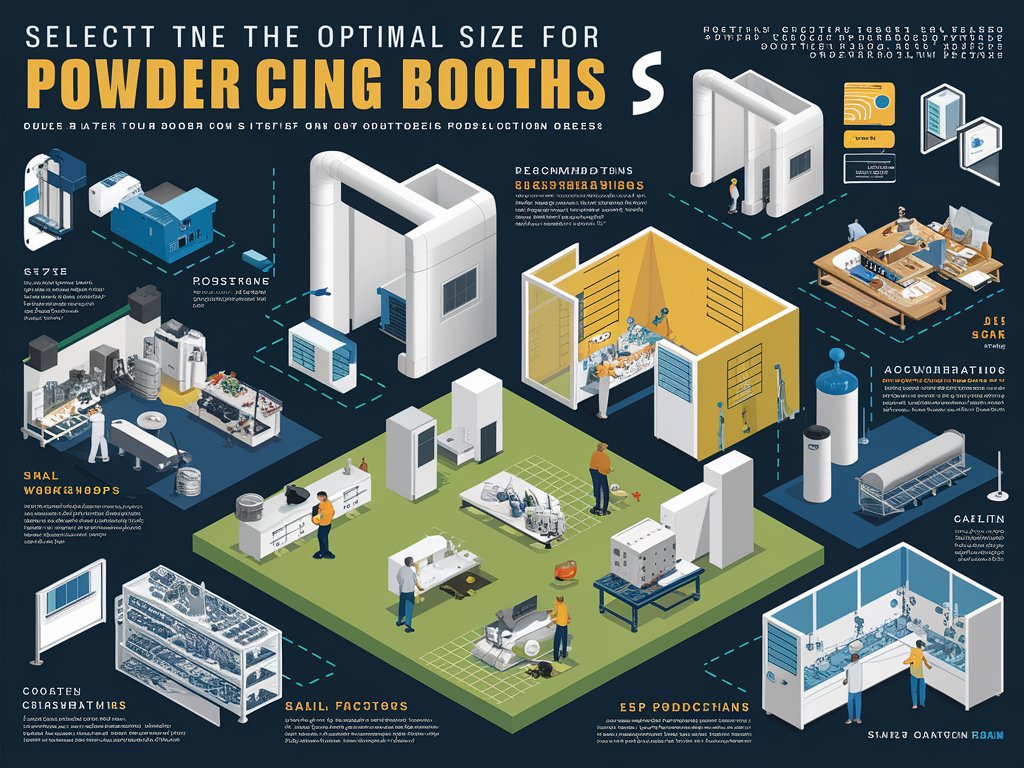Business
Where to Sell TV: Essential Tips for Best Deals
Published
7 months agoon

Discover key strategies where to sell TV. This article offers simple tips on setting the right price, negotiating successfully, and making your sale appealing with added incentives. Ideal for anyone looking to get the best deal on their used TV.
One simple way to sell your TV is by taking it to a nearby thrift shop. These shops have a special area for electronics and might help you sell your TV fast. You can talk about a good price for your TV, thinking about how it looks and what the shop needs.
Neighborhood Ads and Papers
Another good way to sell your TV is through local ads and newspapers. This is great if you want to sell fast. Put an ad for your TV on these, and people who want to buy can call or message you to pick it up or get it delivered5.
Where to Sell TV: Online Selling Sites
You can also sell your TV on websites like eBay, Amazon, and local online selling places. These sites let you choose different prices and ways to send your TV. But, be careful when using these sites because sending the TV to the buyer can be costly and take time.
Social Media Groups
Places like Nextdoor, Craigslist, and other local online groups are good for selling your TV. Put up a post about your TV and talk to people nearby who might want to buy it. Always be careful when meeting buyers, and don’t take checks or online money to avoid being tricked5.
Websites for Selling TV Show Ideas
If you have a TV show or TV show ideas to sell, there are special websites for this. Guerrilla Rep Media is one place where you can find four different ways to sell a TV series. ProductionBest is another site where you can send your TV show ideas to many production companies.
Many Ways to Sell Your TV
There are lots of ways to sell your TV. You can try both local places and online. To get the best price and find a buyer, make sure your TV looks good in photos, write a clear ad, and be safe when you meet buyers.
Choosing the Best Place to Sell a TV
To pick the best place to sell your TV, think about how the TV looks, how much you want for it, and how you want to sell it. Local online places like Facebook Marketplace, Craigslist, and Nextdoor are good for selling to people nearby, so you don’t have to send the TV far4. If you want cash fast, try eBay, Craigslist, Facebook Marketplace, or local pawn shops2. For a bigger audience, Amazon, Shopify, and Decluttr can be good for selling used flat-screen TVs3. Choose a place that is easy and safe for you.

Top Websites for Selling Used Electronics
Here are some of the best websites for selling used electronics:
- Amazon: It’s big and reaches lots of people, great for selling all kinds of used electronics1.
- eBay: This site is very flexible. You can set your prices and choose how to sell.
- Facebook Marketplace: Easy to use and good for selling to people near you.
- Decluttr: Specializes in used electronics. They give you a price quickly, and shipping is free.
- Gazelle: Good for a fast and easy sale. They give you a price and guarantee it for a while.
- Swappa: Safe for sellers, direct sales to buyers, and smooth process4.
- Nextdoor: Great for local sales in your community, quick and direct5.
Compare these sites to see which one works best for what you need. Think about how your electronics look and who might want to buy them to make the best choice.
How to Get a TV Ready for Sale
Getting a TV ready to sell, especially online, needs a few important steps for a good and smooth sale. Here’s what to do:
- Check Condition and Worth: See if it’s good to sell the TV by looking at how it is, how old it is, and what it might be worth.
- Choose Local or Online Sale: Decide if you want to sell it nearby (like on Facebook Marketplace or Craigslist), which is easier for big things like TVs and doesn’t need shipping1.
- Set Price and Make a Listing: Choose a fair price based on how the TV is, how old it is, and what it’s worth. In your ad, give details like the model, size, brand, and any damage.
- Pack Well for Shipping: If you’re sending the TV to someone, pack it well. Think about getting insurance for the shipping in case it gets broken.
- Reset Smart TVs: If it’s a smart TV, like an Apple TV, reset it to factory settings to erase your stuff and accounts. Follow the maker’s steps to reset and unhook it from your devices.
- Pack Well for Local Sale or Moving: If you’re selling it close by or moving it, pack it carefully to avoid damage. Unplug cords, clean the TV, and wrap the screen well.
By doing these things, you can get your TV ready to sell, whether it’s nearby or online, and make the sale go well for everyone.
Also read: Quick Guide to RBC Fullz: Easy Enrollment, Transfers, and Security
Risks of Selling a TV Online
When you sell a TV online, there are some risks you should know about to make sure everything goes safely and well. Here are the main risks:
- Risks with Shipping: TVs are big, heavy, and can break easily. If it breaks when you send it, you might lose the TV and the money. Selling it close to home is safer because it avoids these shipping problems.
- Privacy and Data Safety: Smart TVs can have a lot of your info and can be hacked. This means your data could be used in ways you don’t want, and your TV could be taken over by someone else.
- Hacking Risks: Smart TVs can be at risk of hacking, letting bad people get your info, change settings, or control the TV from somewhere else3.
- Data Collection You Might Not Want: Smart TVs can gather data about you, which can be used for ads that target you. It’s good to know and be okay with how much these TVs track and collect data about you.
To lower these risks, think about selling your TV close to where you live to avoid problems with shipping, reset smart TVs to get rid of personal info, and understand the privacy stuff related to smart TVs and the data they gather. By knowing these risks and being careful, you can make selling a TV online safer.

How to Clean a TV Before Selling
Before you sell your TV, cleaning it well is key to making a great first impression and keeping its value. Here are the best steps for cleaning a TV:
- Unplug the TV: Always unplug the TV first to avoid any electric problems or hurting the screen2.
- Use Microfiber Cloths: Clean the screen with a soft, lint-free microfiber cloth. Don’t use rough materials or normal cleaners, as they can harm the screen13.
- Turn Off the TV: Turn it off and let it cool before cleaning. This helps you see dirt and smudges better in daylight3.
- Dust Off: Gently wipe the screen and edges with a dry microfiber cloth. Dust around ports and speakers can make the TV work worse over time.
- Use a Damp Cloth: Lightly spray a special TV cleaner on a clean microfiber cloth, or use a pre-wet alcohol wipe. Carefully clean the glass and edges, making sure no liquid gets into the speakers or ports3.
- Let It Dry: Let the screen dry on its own before using another clean, dry cloth to remove any streaks3.
- Clean the Remote: Don’t forget to clean the remote control, as it can get dirty and carry germs over time.
By doing these things, your TV will look clean and well-cared for, which will impress potential buyers.
Figuring Out a Used TV’s Value
To figure out what a used TV is worth, think about the brand, model, how old it is, its condition, and features. Websites like UsedPrice.com and resale.todaypricerates.com can show you prices for many used TVs. A quick way to guess the resale price is: Resale Price = Original Price – (Age of TV x Depreciation Rate). Look at similar models online, be honest about your TV’s condition, and be clear about what it can do to get a fair price. You can also check eBay or Craigslist for what similar TVs are selling for. When listing your TV, try setting the price 20-30% lower than what others are asking, and be ready to talk about the price if needed.
Common Scams When Selling a TV
When you sell a TV, watch out for these common scams to stay safe:
- Payment Tricks: Be careful with buyers who want to pay in ways other than cash, like cashier’s checks or online payments. It’s best to get cash when you give them the TV1.
- Shipping Tricks: If you’re selling online to far-away buyers, be careful with shipping scams. TVs can break easily in shipping. It’s safer to sell to someone nearby.
- Fake Deals: Watch out for people pretending to be buyers who offer fake subscriptions or other deals instead of money. Stick to cash sales.
- Keep Your Info Safe: Make sure all your info and passwords are off the TV before you sell it to avoid privacy or security problems.
By knowing these scams, you can keep yourself safe and make sure your TV sale goes smoothly.
How to Talk About the Price for a Used TV
When you’re selling a used TV, talking about the price is a key part. Here’s how to do it well:
- Look Up Similar TVs: Before you put your TV up for sale, check out prices for TVs like yours on sites like eBay or in local ads. This helps you set a fair price based on how old your TV is, its brand, and its features.
- Think About the Buyer’s Money: Remember what the buyer can spend and how much they want to pay for your TV. Be ready to talk about the price, but know the lowest amount you’ll accept.
- Start High, Then Go Down: First, ask for a bit more money than you really want. This way, you have room to lower the price during the talk and still get a good deal5.
- Be Clear About the TV’s Shape: Make sure your TV works well and tell the buyer about any problems it has. This helps the buyer know what they’re getting and can make the talk go smoother2.
- Show Proof of Worth: If you have bills or papers that show how much the TV is worth, use them when you talk about the price. This can prove why your TV is a good deal.
- Be Ready to Respond to Offers: If the buyer gives you a price, be ready to answer with your idea. This might mean changing your price based on their offer and things like how the TV looks or any extras it comes with.
- Focus on the End Price: The main thing is to agree on a price that’s good for both you and the buyer. Be open to talking about the price to find a deal that works for both of you.
By using these steps, you can talk about the price of your used TV in a good way and have a successful sale.
Smart Ways to Negotiate When Selling a Used TV
Selling a used TV and getting a good price can be tricky. Here are some smart ways to negotiate and make the most out of your sale:
- Look Up Prices of Similar TVs: Before you put up your TV for sale, check the prices of TVs like yours on websites like eBay or in local ads. This will help you set a price that’s fair and competitive based on how old your TV is, its brand, and what it can do.
- Be Open to Talking About Price: Be ready to discuss the price, keeping in mind what the buyer can afford. Be willing to change the price a bit based on how the TV looks or any extra stuff that comes with it.
- Start with a Higher Asking Price: First, ask for more money than you really want. This way, you have room to lower the price during negotiations and still end up with a good deal5.
- Be Honest About the TV’s Condition: Make sure your TV works well and tell the buyer about any issues it has. This makes the buyer more informed and can lead to easier negotiations2.
- Show Proof of the TV’s Value: If you have bills, receipts, or other papers that show your TV’s worth, use them when you talk about the price. This can help show why your TV is a good buy.
- Be Ready to End Negotiations: If the buyer doesn’t agree to your price, be prepared to stop the talk. This shows you’re serious about your price and might make the buyer think again.
- Offer Extra Perks: Think about offering extra things like free delivery or setting up the TV to make the deal better for the buyer.
Using these smart negotiation tactics can help you get the best profit and make sure your used TV sells successfully.
Conclusion: Key Tips for Successfully Selling Your Used TV
In short, getting a good deal when selling your used TV isn’t too hard. First, do some homework to find out what similar TVs cost – this helps you set a good price. Be honest about your TV’s condition and have any paperwork ready that shows its worth. This makes buyers trust you more. Start by asking for a bit more money than you want; this way, you can come down to a price that works for both you and the buyer. It’s good to talk about prices but don’t be afraid to say no if the offer is too low. Throwing in something extra, like free delivery, might make someone decide to buy. Using these simple tips can help you sell your TV at a good price.
You may like
-


Smart Layering: A Guide to Efficient Outdoor Clothing Management
-


North South Tech: Your Premier Choice for Web Development and Management Software Solution
-


Pets and plants in long distance moving
-


Exploring the Advantages of PVC Commercial Roofing
-


The Growing Demand for Greensboro IT Support: Navigating the Future of Technology Services
-


Choosing the Best Size for Your Powder Coating Booths
Business
Smart Layering: A Guide to Efficient Outdoor Clothing Management
Published
2 weeks agoon
July 16, 2024
Key Takeaways:
- Understanding the fundamentals of layering for outdoor activities.
- How to select the appropriate materials and garments for various weather conditions.
- Tips for keeping your outdoor wardrobe versatile and functional.
Table of Contents:
- Why Your Choice of Material Matters
- Layering Basics
- Core Layers Explained
- Selecting the Right Insulation Layer
- The Importance of a Protective Outer Layer
- Accessorize Wisely: Enhancing Layering with Accessories
- Layering According to the Weather
- Maintenance Tips for Layering Pieces
- Sustainable Options in Outdoor Clothing
- Real-Life Case Studies
Why Your Choice of Material Matters
The selection of materials for each layer in a person’s outdoor wardrobe has critical implications for overall comfort and the functionality of the attire. Fabric properties vary widely, impacting their breathability, weight, moisture-wicking, and insulation efficacy. For instance, natural materials like merino wool are renowned for their ability to thermoregulate, offering warmth without overheating and cooling without chilling. At the same time, synthetic blends are prized for their resilience and quick moisture transport capabilities, ensuring a wearer’s skin remains dry and less prone to chilling post-exertion.
Layering Basics
We embark on an outdoor adventure, whether a leisurely hike or a rigorous mountaineering expedition, starting with a foundational understanding of effective layering. It is a strategic approach to clothing that involves selecting, combining, and utilizing different layers of garments to create a functional and adaptable attire system that responds favorably to weather conditions, activity levels, and personal comfort. One of the critical elements in successful layering is choosing a reliable base layer, found at retailers specializing in outdoor gear, such as Columbia Sportswear, who offer a diverse assortment of options designed for different climates and activities.
The essence of layering revolves around air trapping and moisture management. Utilizing air as an insulator between layers and ensuring timely moisture transportation away from the skin helps maintain a dry and temperate microclimate central to comfort and warmth outdoors. This necessitates a balance between insulation and ventilation; the layers selected must work in tandem to contain body heat while permitting sweat evaporation, thus sidestepping issues caused by damp garments, which can lead to rapid heat loss and potential hypothermia.
For those seeking a thorough dive into the science of effective layering, resources such as Outside Online offer in-depth examinations and expert insights into the nuance and strategies behind each layering decision tailored to specific outdoor situations.
The Science of Moisture Management
At the core of any layering approach is choosing materials for base layers that excel in moisture management, a quality paramount in maintaining comfort and avoiding hypothermal reactions when outdoors. Synthetic fibers such as polyester and nylon are particularly adept at wicking away moisture and facilitating quick drying. These materials close to the skin are imperative to minimizing the sensation of wetness and preventing the body from experiencing temperature drops post-activity. Brands devote significant research and development to optimize these fabrics’ technical properties, but it is imperative to follow care instructions to preserve these characteristics.
Core Layers Explained
The core layers are critical to the layering system as the initial defense against external temperature variations. Positioned closest to the skin after the base layer, core layers are tasked with managing moisture and providing an initial level of insulation. They are structured to be form-fitting, maximizing fabric-to-skin contact, which is central to efficient wicking. As with any component of stacking layers, these come in various weights and styles, allowing the wearer to adapt to their immediate environment and the activity level, from lightweight pieces suitable for mild climates to heavyweight options intended for chillier endeavors.
Selecting the Right Insulation Layer
As the name suggests, the insulation layer’s primary function is to retain body heat, and this layer generally occupies the middle spot in a layering lineup. Fleece jackets, down vests, and wool sweaters are standard selections due to their proficiency in providing warmth without the cumbersome bulk. Their design allows for trapping heat effectively while still facilitating freedom of movement, thus making them an ideal choice for outdoor adventurers. Choosing the suitable insulation layer depends on preference and practicality; size and compressibility matter if you pack and adjust layers throughout the day.
The Importance of a Protective Outer Layer
Bracing for what nature throws at you requires a competent outer layer. This layer acts as a fortress against rain, wind, and snow. A protective shell’s primary attributes are its resilience to weather and its breathability. Options range from soft shells, esteemed for their elasticity and breathability, favoring intense physical activity in moderate weather conditions, to hard shells that are paramount for protection in more severe, unpredictable climates. Contemporary design intelligently integrates adjustable features for venting and modifying how the garment sits on the body, ensuring that the wearer can regulate temperature effectively amid activities.
Accessorize Wisely: Enhancing Layering with Accessories
An intelligent selection of accessories can significantly boost the comfort and adaptability of your layering strategy. Small additions such as hats, gloves, scarves, or gaiters substantially impact retaining body warmth. The head, hands, and neck are areas where heat can quickly dissipate, and by addressing these zones, one can effectively modulate their body temperature. The beauty of such items lies in their ability to be easily added or removed in response to the body’s heat production or the rise and drop in external temperatures.
Layering According to the Weather
Weather awareness is indispensable to successful layering and overall readiness for the great outdoors. Sudden meteorological shifts, widespread in mountainous or coastal regions, necessitate a proactive and preemptive layering strategy. It’s recommended to consult accurate weather forecasts, such as those provided by The Weather Channel, and prepare accordingly, ideally bringing additional layers that can be easily donned or shed as conditions fluctuate. Staying ahead of the weather means greater comfort, safety, and enjoyment of outdoor pursuits.
Maintenance Tips for Layering Pieces
Each layer in your outdoor gear lineup requires specific maintenance to ensure longevity and peak performance. Diligent care practices, according to manufacturers’ guidelines, are vital. For example, technical fabrics often need a gentle wash cycle or hand washing to preserve technical properties such as waterproofing or breathability. Re-waterproofing with a DWR spray can also revitalize a garment’s weather resistance. Treating your outdoor apparel with care elongates its life and maintains its protective and insulative features, safeguarding against wear and tear.
Sustainable Options in Outdoor Clothing
The push for more environmentally responsible choices in all aspects of life extends to outdoor clothing. The industry’s response is seen in the emergence of products manufactured from recycled materials or through more ecologically considerate production processes. Brands that take definitive steps toward sustainability offer consumers the chance to make more meaningful purchase decisions that align with their environmental values. These sustainable garments often hold up longer than their conventional counterparts, reducing their environmental footprint over time.
Real-Life Case Studies
The real-world experiences of seasoned outdoor professionals and enthusiasts can be immensely educational for those looking to perfect their layering system. Detailed accounts of adventures undertaken in varying climates provide context to layering theory, spotlighting effective combinations and the versatility required to cope with the elements. Through such case studies, valuable lessons can be extracted and applied to one’s outdoor activities, improving preparedness and comfort during diverse adventures.

When it comes to selecting a reliable and efficient roofing solution for commercial buildings, PVC (Polyvinyl Chloride) roofing has established itself as a top contender. Known for its outstanding durability, energy efficiency, and versatility, PVC roofing is a popular choice among building owners and contractors. This article will delve into the composition, benefits, applications, unique features, installation tips, and maintenance advice for PVC commercial roofing.
Introduction to PVC Roofing
PVC roofing is a single-ply membrane roofing system composed of polyvinyl chloride and other additives that enhance its flexibility and performance. The material is known for its strength and resistance to various environmental factors, making it a reliable option for commercial roofing. PVC membranes are typically available in white, which provides excellent reflectivity and contributes to energy efficiency.
Key Benefits of PVC Roofing
PVC roofing offers numerous benefits that make it an attractive choice for commercial properties:
- Durability: PVC roofing membranes are highly durable and resistant to punctures, tears, and impact damage. They also exhibit excellent resistance to UV radiation, chemicals, and fire, ensuring long-lasting performance.
- Energy Efficiency: The reflective properties of PVC roofing help reduce heat absorption, leading to lower cooling costs and improved energy efficiency. This makes PVC roofing an eco-friendly option that can contribute to LEED credits.
- Low Maintenance: PVC roofing requires minimal maintenance due to its inherent resistance to dirt, debris, and biological growth. Regular inspections and cleaning are usually sufficient to keep the roof in optimal condition.
Applications and Suitability
PVC roofing is suitable for a wide range of commercial applications, including:
- Office Buildings: The energy efficiency and durability of PVC roofing make it ideal for office buildings, helping to reduce operational costs and provide a comfortable indoor environment.
- Retail Stores: PVC roofing’s reflective properties can help retail spaces lower their cooling expenses, creating a more pleasant shopping experience for customers.
- Manufacturing Facilities: The chemical resistance and durability of PVC roofing make it an excellent choice for manufacturing and industrial buildings where exposure to chemicals and heavy equipment is common.
Unique Features and Advancements
PVC roofing technology continues to evolve, offering enhanced features and benefits:
- Reinforced Membranes: Modern PVC roofing membranes are often reinforced with polyester or fiberglass, providing additional strength and dimensional stability.
- Heat-Welded Seams: PVC roofing seams are heat-welded, creating a strong, watertight bond that is resistant to leaks and other forms of water infiltration.
- Recyclability: PVC roofing is fully recyclable, making it an environmentally responsible choice that reduces waste and contributes to sustainability.
Installation Tips and Maintenance Advice
Proper installation and maintenance are crucial for maximizing the performance and lifespan of PVC roofing:
Installation Tips
- Surface Preparation: Ensure the roof deck is clean, dry, and free of debris before installing the PVC membrane.
- Proper Fastening: Use appropriate fastening methods and materials as specified by the manufacturer to secure the membrane and prevent uplift.
- Seam Welding: Utilize heat-welding techniques to create strong, watertight seams that prevent leaks and ensure the integrity of the roof.
Maintenance Advice
- Regular Inspections: Conduct routine inspections to identify and address any potential issues, such as punctures, tears, or loose seams.
- Cleaning: Keep the roof surface clean by removing debris and dirt regularly to prevent damage and maintain its reflective properties.
- Prompt Repairs: Address any damage or leaks promptly to prevent further deterioration and extend the life of the roof.
In conclusion, PVC commercial roofing offers a range of benefits that make it a top choice for various commercial buildings. Its durability, energy efficiency, and low maintenance requirements, combined with advancements in technology, ensure that PVC remains a leading option in the roofing industry. By following proper installation practices and maintenance routines, businesses can enjoy the long-lasting performance of their PVC roofs for many years to come.
Business
Choosing the Best Size for Your Powder Coating Booths
Published
2 months agoon
May 23, 2024
When it comes to optimizing your production facility, selecting the right size for your powder coating booths is a crucial decision that can significantly influence operational efficiency and cost-effectiveness.
This detailed guide will walk you through the key considerations to keep in mind while determining the ideal booth size for your specific needs. We’ll cover everything from assessing production requirements and available space to considering future scalability and consulting with industry experts. Let’s dive in and find the perfect fit for your facility.
Assessing Production Needs and Throughput Requirements
First and foremost, understanding your production demands is vital. How much volume do you expect to handle? Are your projects typically large or small? These questions are fundamental as they directly impact the size and type of powder coating booths required. For high-volume production environments, larger booths or multiple paint spray booths might be necessary to handle the workload efficiently without bottlenecks. Each project’s specifics, such as dimensions and turnaround time, must also be considered to maintain a smooth workflow.
Evaluating Available Space and Facility Constraints
Now, let’s talk about the space you have. Before you can decide on the size of your blast booths, you need to evaluate the physical area of your facility. Is space at a premium, or do you have room to grow? The layout of your facility will influence the type of booth you can accommodate—whether it’s a more compact, vertical setup or a sprawling, horizontal one. It’s essential to ensure that there’s enough room for not only the booth but also for safe and efficient operation around the booth area.
Considering Future Expansion and Scalability
Thinking ahead is key in business. As you look at the present requirements, it’s wise to also consider future growth. Will your production demands increase? If so, opting for scalable solutions in your powder coating booth setup can save you significant time and money down the line. This might mean choosing modular booths that can be expanded or reconfigured as your business grows and evolves.
Understanding Equipment Compatibility and Integration
Compatibility is another critical factor. Your new powder coating booth should seamlessly integrate with existing systems. This involves considering the technical specifications of the booth relative to your current machinery, such as conveyor belts or automated spray systems. Ensuring that all components of your production line communicate effectively with one another is essential for maintaining operational harmony and maximizing throughput.
Analyzing Budgetary Considerations and Cost Efficiency
Budgeting cannot be overlooked. While it’s tempting to go for the largest or most technologically advanced booth, it’s important to balance your needs with what you can afford. Cost-efficiency doesn’t just come from purchasing the booth but also from its long-term operation and maintenance costs. Consider energy consumption, filtration systems, and maintenance access when choosing your booth size and features, as these can significantly affect overall expenses.
Consulting with Manufacturers for Guidance
Lastly, don’t go at it alone. Consulting with manufacturers can provide invaluable insights into the latest technologies and trends in powder coating booths. These professionals can offer tailored advice based on your specific production needs, available space, and budget. Taking the time to discuss your options with experienced professionals can lead to better decision-making and a more optimized production environment.
By carefully considering these aspects, you can choose the best size for your powder coating booths that not only meets your current needs but also accommodates future growth. Remember, the right investment in your infrastructure is pivotal to enhancing your operational efficiency and ultimately, your bottom line.

Smart Layering: A Guide to Efficient Outdoor Clothing Management

North South Tech: Your Premier Choice for Web Development and Management Software Solution

Pets and plants in long distance moving

yt.be Activate: Activating YouTube with yt.be

Finance and Maneuver in Business

